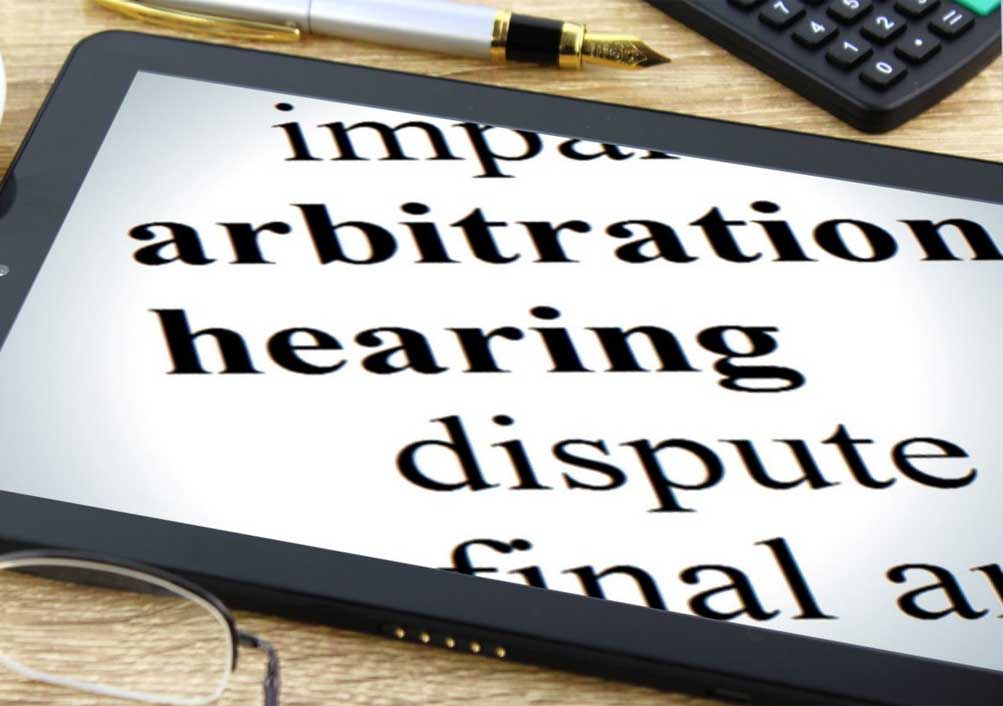Arbitral award can’t be set aside on ground of patent illegality u/s 34(2A) of Arbitration & Conciliation Act,if it is culmination of ‘international commercial arbitration’: Delhi HC

Read Judgment: Steel Authority of India vs. Tata Projects
Pankaj Bajpai
New Delhi, September 8, 2021: While stating that Arbitral Tribunal’s evaluation as to evidentiary value of any material was a matter within jurisdiction of the Arbitral Tribunal, the Delhi High Court has ruled that an arbitral award cannot be set aside on the ground of patent illegality u/s 34(2A) of the Arbitration and Conciliation Act,if it is culmination of an “international commercial arbitration”.
The Single Bench of Justice Vibhu Bakhru observed that while examining petition u/s 34, the writ courts did not act as a Court of First Appeal for re-appreciation and re-evaluation of evidence/material on merits.
Unless, the conclusion of Arbitral Tribunal shocked the conscience of High Court as being opposed to the most basic notions of morality and justice, no interference with arbitral award rendered in an International Commercial Arbitration was warranted, added the Bench.
The disputes arose between parties in relation to a Contract Agreement, concerning issuance of Final Acceptance Certificate (FAC) and attendant payments due to Respondents on issuance of FAC.
The Petitioner (SAIL) had withheld FAC and FAC payments on the ground that the respondents had not completed their obligations under the Agreement. This was principally on account of failure to commission wireless Fire Detection System.
Thereafter, pursuant to the request for arbitration filed by the respondents with Secretariat of International Court of Arbitration (ICC Court), dispute was referred to Arbitral Tribunal comprising three members constituted under Rules of Arbitration of International Chamber of Commerce (ICC Rules).
By the impugned award, the Arbitral Tribunal partly accepted claims preferred by the respondents and awarded an amount along with interest at rate of 10% per annum in their favour. Thus, SAIL filed present petition u/s 34, challenging the award.
After considering the provisions, Justice Bakhru stated that an arbitral award could not be set aside on ground of patent illegality u/s 34(2A), if it was culmination of an “international commercial arbitration”.
Where it was evident that a foreign incorporated entity was a party to the contract, it clearly specified obligations to be performed by that foreign entity and created corresponding rights in favour of the other party. In such cases, it must be accepted that a contract existed with the foreign incorporated entity and arbitration in respect of the contract would undoubtedly be an international commercial arbitration by virtue of sub-clause (ii) of clause (f) of sec. 2(1), added Justice Bakhru.
The High Court noted that in the instant case, it was agreed that disputes relating to contracts between SAIL and Indian parties, where value of the contract exceeded Rs. 5 crores, would be referred to arbitration under Rules of Indian Council of Arbitration (ICA) or Scope Forum of Conciliation and Arbitration (SCFA).
At the same time, the High Court observed that in case of contracts with foreign contractors or a consortium (including foreign contractors) where the contract exceeded Rs. 20 crores, disputes would be referred to arbitration under ICC Rules.
As there was no controversy that disputes were rightly referred to arbitration under ICC Rules, it followed that SAIL also understood that impugned Agreement included the foreign contractor DC that had been referred to as a “Consortium Member and Contractor” in the Agreement, highlighted Justice Bakhru.
Thus, the Court found that it was clear that SAIL had recognized that the Agreement included obligations that were required to be specifically performed by DC, which was a foreign incorporated entity.
Hence, unable to accept that arbitration between the parties was not an International Commercial Arbitration u/s 2(1)(f), the High Court dismissed the petition concluding that no ground of patent illegality was available to SAIL for assailing the impugned award.
Sign up for our weekly newsletter to stay up to date on our product, events featured blog, special offer and all of the exciting things that take place here at Legitquest.




Add a Comment